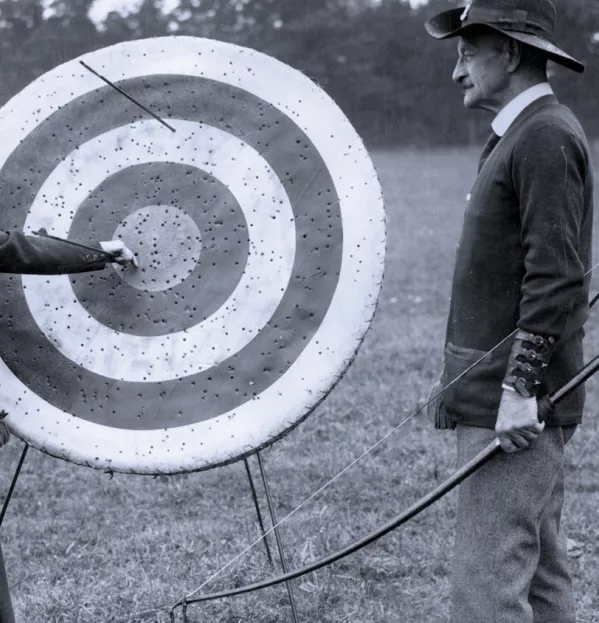Why apprenticeships hit the target for graduates, too

In November 2015, then prime minister David Cameron was giving a speech to the CBI business lobby group.
“If we’re going to compete in a global economy then we need to make sure that our young people are more highly skilled, more highly trained than our competitors,” he told the audience. “So either apprenticeships or universities for almost everybody.”
The target of creating 3 million apprenticeships by 2020, set out in the Conservative Party’s 2015 general election manifesto, is well documented. What is less well known is that, increasingly, the 3 million will not be made up solely of those following Cameron’s apprenticeship route: it will include people who have been to university as well.
New trend
The trend of graduates joining apprenticeship schemes is relatively new, owing to previous rules prohibiting those with a degree from being eligible for government funding. In addition, until very recently, most apprenticeships available were at levels 2-4. With level 4 being equivalent to the first year of a degree, it could be argued that many graduates would be overqualified to embark on one.
However, the recent push by the government to create apprenticeships at degree and master’s levels has opened up a new avenue for those leaving university. In theory, graduates can now do an apprenticeship at a level higher than that of their degree.
As an added bonus, it would also make them eligible for funding. What it means in practice is that many employers, with the levy looming large over their training budgets, are looking at how they can train a whole new intake of graduates via an apprenticeship route. And graduates aren’t progressing only to higher-level apprenticeships.
With new apprenticeship standards being focused on job roles, there are now cases where graduates with a non-relevant degree are being funded on lower levels of apprenticeships, using the argument that their degree didn’t teach them the necessary knowledge or skills to perform in that role. The apprenticeship training is therefore needed, it is argued, to get their skills up to scratch.
Taking this into consideration, many see the 3 million figure as being easily achievable. But were graduates as apprentices really what anyone had in mind when the scheme was developed? Many question the ethics of diverting funding into graduate schemes. Others worry that the apprenticeship brand is being devalued by this new trend, especially as some employers are shying away from calling these schemes apprenticeships for fear that this will put graduates off applying.
Pete Ward, operations manager at social mobility charity Leadership Through Sport and Business, has strong views on the subject, especially in respect of graduates completing apprenticeships at lower levels. As a result of £9,000 tuition fees, “for a generation of disadvantaged young people, the promise of university has changed substantially, potentially limiting social mobility”, he says.
“Many are worried by the high levels of debt with no guarantee of a job at the end,” he adds. “Apprenticeships can be incredible opportunities but they should be first steps. If your degree leaves you needing an apprenticeship, it’s hard to understand why it was worth an average £44,000 and three years of your life.”
Christos Orthodoxou, founder of social enterprise Class Careers, shares Ward’s concern about lack of employment opportunities but takes a more sympathetic view of post-degree apprenticeships. “There are thousands of students who leave university and, sadly, fail to get a job,” he says. “For someone to take the initiative to undertake a higher apprenticeship - which some would view as a step backwards - shows passion, commitment and a drive to succeed.”
Master in the field
So is the binary approach of apprenticeships or university really a helpful one? The meaning of the word “apprenticeship”, going back to its French and Latin routes, is “someone in a state of learning from a master in the field”.
Nowhere does this definition stipulate the age or background of the apprentice. It simply defines an apprentice as somebody learning a trade, be that as a plumber, a broadcast engineer or a solicitor. Few professions today take on graduates who can hit the ground running; most require some form of structured training. With this being the case, is it really so wrong for a graduate to complete an apprenticeship? Should apprenticeships be the domain of the school-leavers only?
What we urgently need is to work on improving the image of apprenticeships. Why should graduates feel ashamed to complete one? Surely any investment in skills and training should be seen as a positive step to improving our ability to compete in a post-Brexit world. Shouldn’t we be looking forward to the day when our prime minister stands up to say that their ambition is “an apprenticeship for everybody”, even for those who have been to university first?
Cassandra Macdonald is head of professional services apprenticeships at training provider Kaplan
@CassandraMacDo2
You need a Tes subscription to read this article
Subscribe now to read this article and get other subscriber-only content:
- Unlimited access to all Tes magazine content
- Exclusive subscriber-only stories
- Award-winning email newsletters
Already a subscriber? Log in
You need a subscription to read this article
Subscribe now to read this article and get other subscriber-only content, including:
- Unlimited access to all Tes magazine content
- Exclusive subscriber-only stories
- Award-winning email newsletters